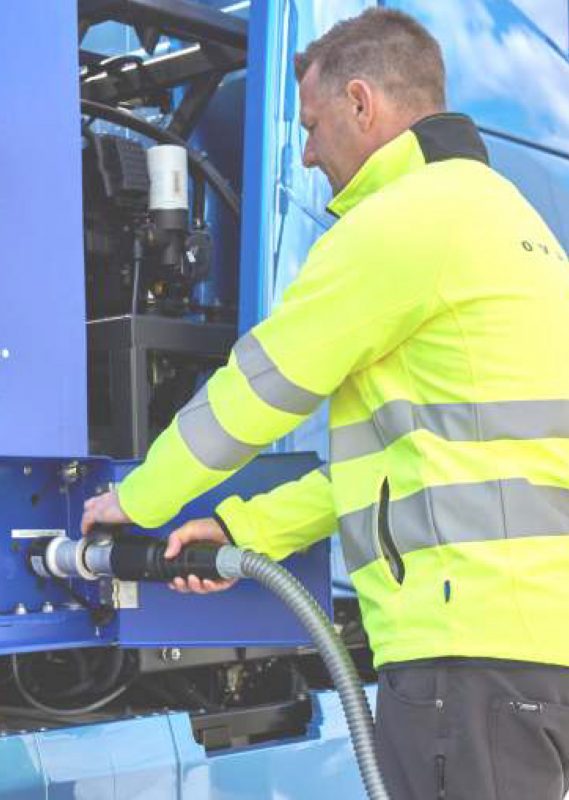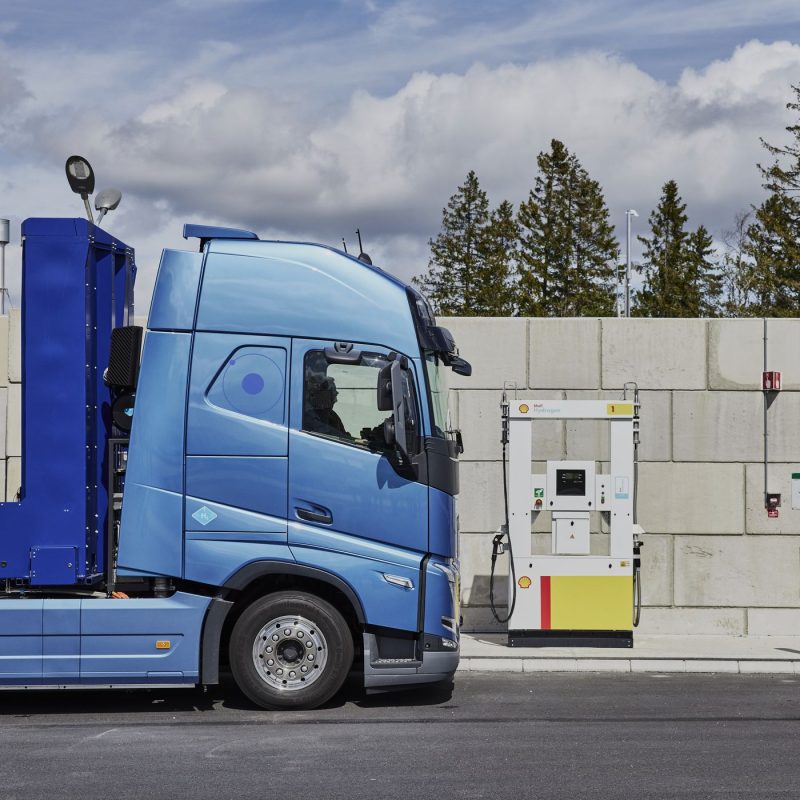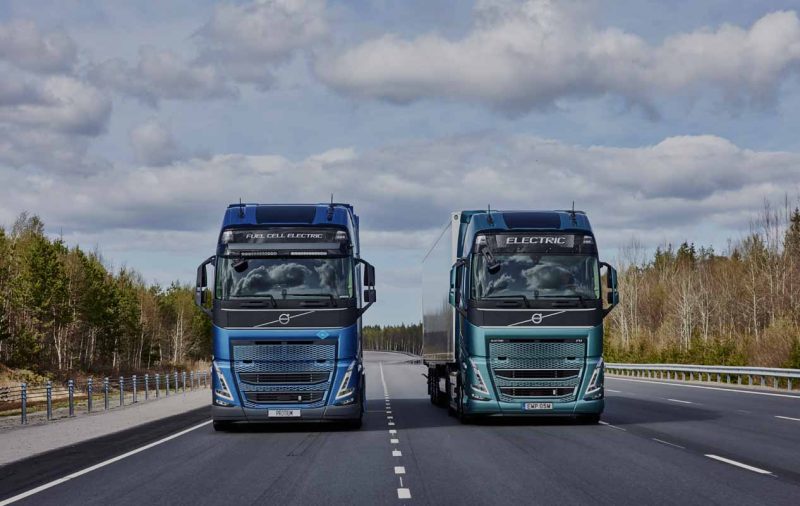Volvo Trucks showcases new Hydrogen-powered fuel cell electric trucks with zero-emissions
“We expect the supply of green hydrogen to increase significantly during the next couple of years, since many industries will depend on it to reduce CO2. However, we cannot wait to decarbonize transpo, we are already running late. So, my clear message to all transpo companies is to sta the journey today with baery electric, biogas and the other options available. The fuel cell trucks will then be an impoant complement for longer and heavier transpos in a few years from now.”
– Roger Alm, President of Volvo Trucks
Imagine a truck that only emits water vapor, produces its own electricity onboard and has a range of up to 1,000 km. It’s possible with fuel cells powered by hydrogen, and Volvo Trucks has started to test vehicles using this new technology.
Hydrogen-powered fuel cell electric trucks will be especially suitable for long distances and heavy, energy-demanding assignments.
To decarbonize transport, Volvo Trucks now offers battery electric trucks and trucks that run on renewable fuels, such as biogas. In the second half of this decade, a third CO2-neutral option will be added to its product portfolio – fuel cell electric trucks powered by hydrogen.
“We have been developing this technology for some years now, and it feels great to see the first trucks successfully running on the test track. The combination of baery electric and fuel cell electric will enable our customers to completely eliminate CO2 exhaust emissions from their trucks, no maer transpo assignments,” said Roger Alm, President of Volvo Trucks.
The fuel cell electric trucks will have an operational range comparable to many diesel trucks – up to 1 000 km – and a refuelling time of less than 15 minutes. The total weight can be around 65 tons or evenhigher, and the two fuel cells have the capacity to generate 300 kW of electricity onboard.
Customer pilots will start in a few years from now and commercialization is planned for the latter part of this decade. “Hydrogen-powered fuel cell electric trucks will be especially suitable for long distances and heavy, energy-demanding assignments. They could also be an option in countries where battery charging possibilities are limited,” Alm explained.
Generates its own electricity—A fuel cell generates its own electricityfrom the hydrogen onboard instead of being charged from an external source. The only biproduct emitted is water vapor.
Fuel cells delivered by cellcentric—The fuel cells will be supplied by cellce ntric – the joint venture between the Volvo Group and Daimler Truck AG. Cellcentric will build one of Europe’s largest series production facilities for fuel-cells, specially developed for heavy vehicles.
More green hydrogen needed—Fuel cell technology is still in an early phase of development and there are many benefits with the new technology, but also some challenges ahead. One of them is largescale supply of green hydrogen. Another is the fact that refuelling infrastructure for heavy vehicles is yet to be developed.
“We expect the supply of green hydrogen to increase significantly during the next couple of years, since many industries will depend on it to reduce CO2. However, we cannot wait to decarbonize transport, we are already running late. So, my clear message to all transport companies is to start the journey today with battery electric, biogas and the other options available. The fuel cell trucks will then be an important complement for longer and heavier transports in a few years from now,” Alm noted. Source: www.volvotrucks.com

Volvo Trucks: First in the world to use fossil-free steel in its trucks
Volvo has introduced fossil-free steel in its trucks, the first truck manufacturer in the world to do so.
The steel is produced by the Swedish steel company SSAB and the heavy-duty electric Volvo trucks will be the first to include it. The steel will first be used in the truck’s frame rails.
The steel from SSAB is produced using a completely new technology, based on hydrogen. The result is a much lower climate impact than conventionally produced steel. Small scale introduction of the steel in Volvo’s heavy electric trucks will begin in the third quaer of 2022.
“We will increase the use of fossil-free materials in all our trucks to make them net-zero not only in operation – but also when it comes to the materials they are built of,” said Jessica Sandström, Senior Vice President Product Management, Volvo Trucks.
The first steel produced with hydrogen will be used in the truck’s frame rails, the backbone of the truck upon which all other main components are mounted. As the availability of fossil-free steel increases, it will also be introduced in other pas of the truck.
90% of a Volvo truck can be recycled Today, around 30% of the materials in a new Volvo truck come from recycled materials. And up to 90% of the truck can be recycled at the end of its life.
“We are continuously striving to fuher minimize our climate footprint. We are also moving towards greater circularity in both our operations and our trucks,” said Sandström.
Volvo Group is collaborating with SSAB on fossil-free steel since 2021. The first machine, a load carrier made
of fossil-free steel, was showcased in October 2021. Fossil-free steel will be an impoant complement to the traditional and recycled steel used in Volvo’s trucks.
Volvo Trucks said it is commied to the Paris agreement and to achieving net-zero greenhouse gas emissions in the value-chain by 2040, at the latest.











